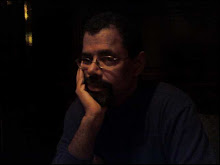What struck me as Congress insisted on pushing jurisdiction in this matter on the federal courts is just what the fed courts could even hold here.
Given the general role of the federal courts, they would have to find that the state law and consequent legal decisions governing Schiavo's guardianship either conflicted with pre-empting state law or the federal Constitution.
Since Congress passed no law regarding end-of-life decisions, it just granted jurisdiction, there was no federal statutory law to apply against state law. That just left the Constitution.
The yahoos screamed for the courts to declare a constitutional "right to life" or some such. Given all the possible applications any such ruling could have on future holdings on everything from banning assisted suicide (which the yahoos would like) to overturning the death penalty (which the yahoos wouldn't like), the possible global affect meant it was pretty unlikely any court would issue such a thing. As the Schiavo case itself demonstrated, these are issues best left resolved through the public forum, the legislative branch.
Justice Scalia often complains that the courts take on too many complex moral issues which the legislatures need to hammer out majority agreement on. The Schiavo case was Example #1A of what he means. Heck, the more controversial it got, the -less- likely the courts were to pre-empt public debate with some kind of holding from the mountaintop. Clearly, any court would see solely as a matter of democratic process, the legislatures need to be where this issue finds some kind of resolution.
Terry Preston's in-depth views on the pressing issues of the day, from God, sex and national politics to the high price of a good beer at the ballgame. Any and all comments to these comments are encouraged.
Monday, April 04, 2005
Subscribe to:
Post Comments (Atom)

No comments:
Post a Comment